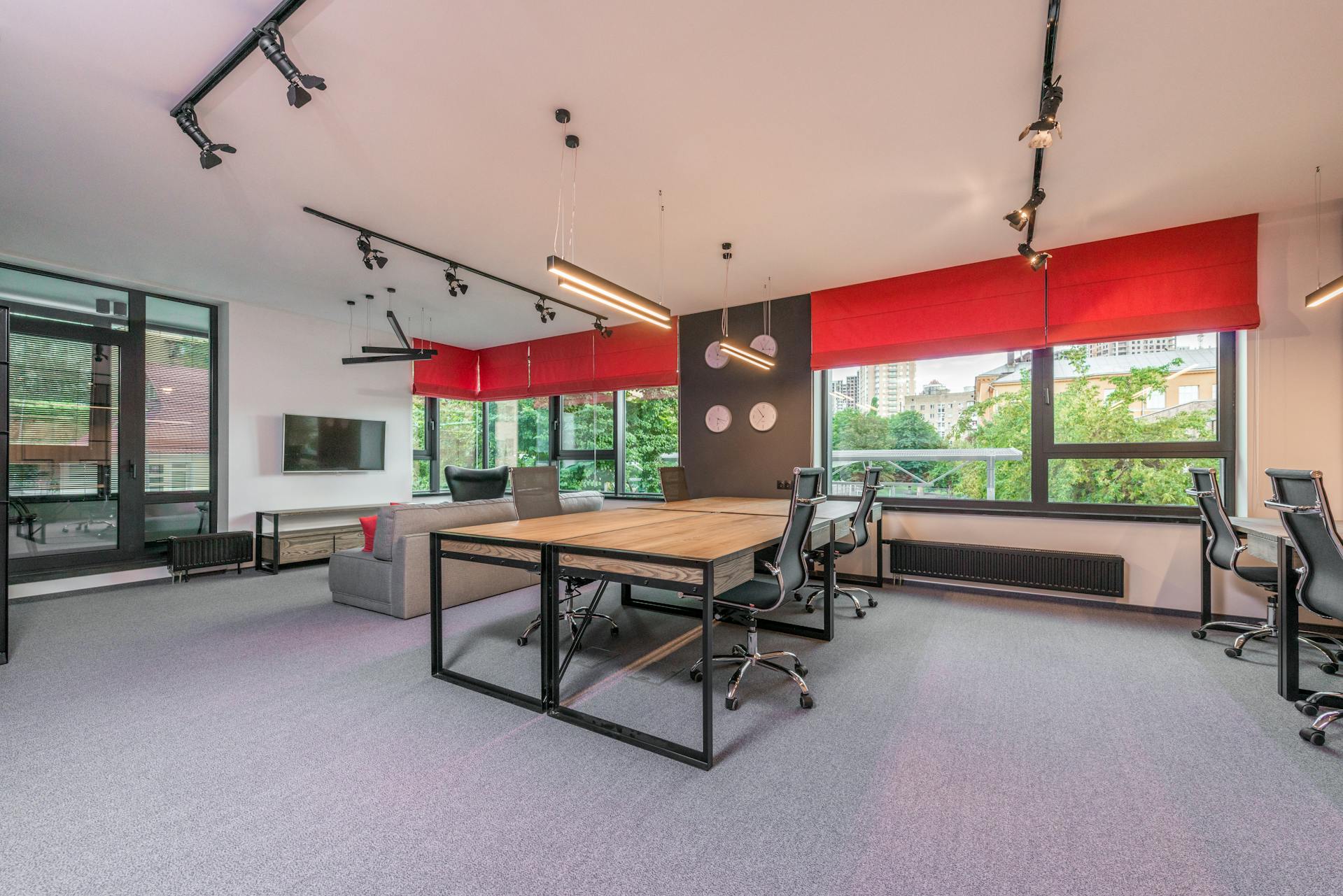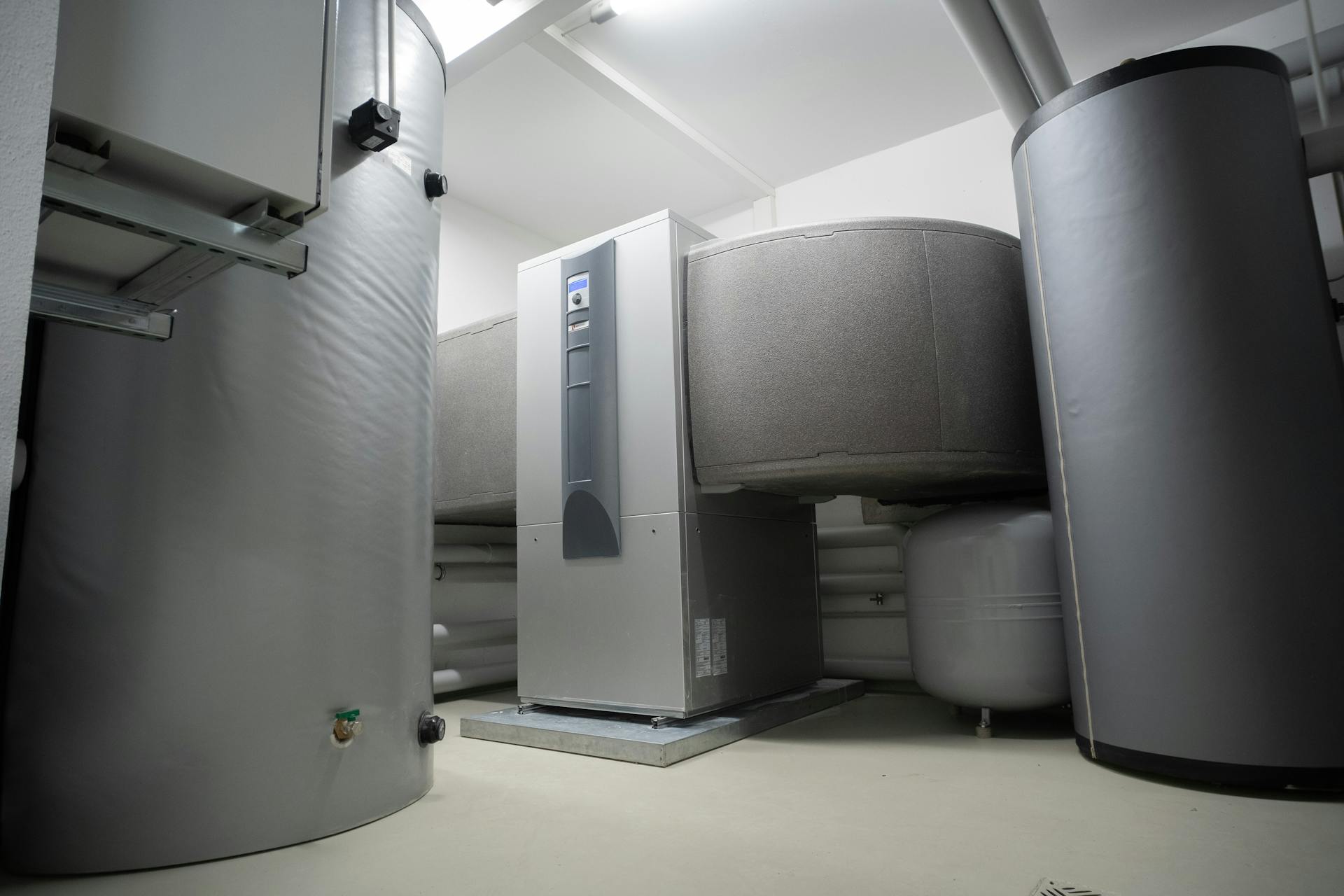
Looking for the right heating system for your business facility? In this blog post, we discuss different types of systems, their benefits and drawbacks, and key factors to consider when selecting one. From traditional options like boilers to modern heat pumps, find out which option is best for your facility's needs.
As the colder months approach, businesses must prepare for the changing weather and ensure that their facilities are equipped with proper heating systems. Choosing the right heating system not only keeps employees comfortable, but also has a significant impact on energy costs and the overall efficiency of the facility.
In this blog post, we will discuss everything you need to know about heating systems in business facilities. We will explore different types of heating systems, their benefits and drawbacks, and key factors to consider when selecting one for your facility. From traditional boilers to modern heat pumps, we have got you covered. Let’s get started.
Types of Heating Systems
There are several types of heating systems commonly used in business facilities, each with its own unique features and benefits. Traditional options include boilers, furnaces, and radiators, which use fuel such as gas or oil to heat the building. These systems are known for their reliability and high heat output, but can be expensive to install and operate.
Modern alternatives like heat pumps use electricity to transfer heat from outside air into the building, making them more energy-efficient and cost-effective in the long run. Other options include geothermal heat pumps and solar thermal systems, which utilize renewable energy sources for heating.
Benefits and Drawbacks of Heating Systems
Each type of heating system has its own set of benefits and drawbacks that should be considered when making a decision for your business facility. Traditional systems like boilers and furnaces are known for their high heat output and reliability, but can be expensive to install and operate compared to modern alternatives.
Heat pumps, on the other hand, are more energy-efficient and cost-effective in the long run, but may not provide enough heat in extremely cold climates. Geothermal heat pumps and solar thermal systems have the added benefit of using renewable energy sources, but require a larger initial investment.
Factors to Consider When Selecting a Heating System
When selecting a heating system for your business facility, it is important to consider various factors such as the size and layout of the building, climate conditions, and budget constraints. Large buildings may require a more powerful heating system, while smaller spaces may benefit from a more compact option.
A thorough assessment of these factors will help determine which type of heating system is most suitable for your facility. For example, you can consider heater rentals for temporary heating needs if your facility is not equipped with a permanent system. Additionally, consulting with a professional heating specialist can provide valuable insights and recommendations based on your specific needs and requirements.
Energy Efficiency and Cost Savings
Choosing an energy-efficient heating system can have a significant impact on the overall operating costs of your business facility. Modern heat pumps, geothermal systems, and solar thermal systems are known for their high-efficiency rates, meaning they use less energy to produce the same amount of heat compared to traditional options. This can result in substantial cost savings on utility bills over time.
It is important to also consider the initial installation and maintenance costs when evaluating the overall cost-effectiveness of a heating system. While some systems may have a higher upfront cost, they may provide long-term savings through reduced energy consumption.
Maintenance Requirements
Proper maintenance is crucial for ensuring the efficiency and longevity of your business facility’s heating system. Traditional systems like boilers and furnaces require regular upkeep such as cleaning or replacing filters, while modern options like heat pumps may have different maintenance requirements.
It is important to follow manufacturer recommendations for maintenance and schedule regular check-ups with a professional HVAC technician to address any potential issues before they become major problems. Neglecting proper maintenance can result in decreased efficiency, higher operating costs, and potentially costly repairs or replacements.
Importance of Proper Installation
The installation of a heating system is a complex process that requires proper knowledge and expertise. Improper installation can not only result in reduced efficiency and higher energy costs, but also safety hazards for your business facility.
It is important to hire a licensed and experienced heating specialist to ensure the proper installation of your chosen heating system. They will consider factors such as ventilation, placement, and sizing to optimize the performance of the system. In addition, professional installation may also come with warranty coverage for added peace of mind.
Choosing the right heating system for your business facility requires careful consideration of various factors such as type, benefits and drawbacks, maintenance requirements, and installation. By understanding these key aspects, businesses can make informed decisions that not only keep their employees comfortable but also save on energy costs in the long run. Proper maintenance is also crucial for ensuring the efficiency and longevity of the heating system. It is recommended to seek professional guidance from a licensed HVAC technician to determine the most suitable option for your specific needs and ensure proper installation.
Was this news helpful?







 Yes, great stuff!
Yes, great stuff! I’m not sure
I’m not sure No, doesn’t relate
No, doesn’t relate



